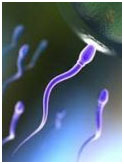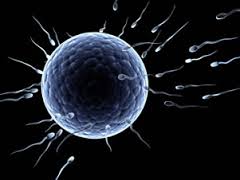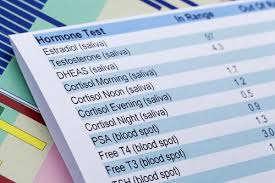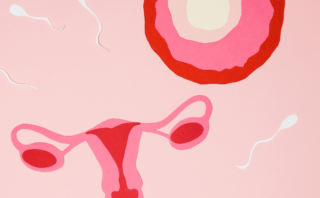Want to know how to increase sperm naturally? Actually – sperm quality?
The motility (movement) and the morphology (shape) of the sperm is just as important for fertilization of the egg. If you have been wondering if you have a ‘normal sperm count’, it may be a good idea to have a test done for evaluation. Your body can always use some extra help through nutritional and lifestyle choices as this can go a long way to help increase your sperm count and quality!
for evaluation. Your body can always use some extra help through nutritional and lifestyle choices as this can go a long way to help increase your sperm count and quality!
As part of a preconception care plan, it is always helpful to get a routine check up. Letting your doctor know you are trying to conceive is helpful so they can discuss any relevant information you may need to know. There are certain medical conditions that can interfere with reproductive function so these need to be ruled out, addressed or monitored.
Sperm Maturation
The spermatozoa take around three months to mature, although they are constantly being produced. If you have had the flu, an infection or fever within the last few months, this could affect your current sperm quality. Likewise any negative lifestyle factors can also impact your sperm cells. How to increase sperm count? Your body can do with some replenishment and ‘TLC’ to help restore the quality of your sperm. Your sperm supply should be completely regenerated after around three months time.
How to Increase Sperm Count
Diet
Nutrition plays a huge role for the production of healthy sperm and semen (probably more than you realize). Keep your diet well balanced to ensure optimal fertility, and this will also help keep up energy levels. How to increase sperm count:
- Eat fresh organic fruits and veggies – these are full of essential vitamins, minerals and antioxidants (must be free of pesticides and other chemicals that damage sperm).
- Proteins – eat more seafood and vegetable proteins rather than meats.
- Organic lean meats/poultry/eggs and dairy – check packaging labels, must be “hormone free” (as these can significantly contribute towards hormonal imbalances).
- Saturated fats (mostly from animal sources) – limit daily intake.
- Trans fats (avoid totally) – liquid oils that are made into solid fats, often found in packaged products or fast foods (check all labels).
- Eat unsaturated fats which include the essential fatty acids (the good fats) – these are found mostly from vegetable sources (except omega 3) – incorporate these into your diet.
- (EFAs) Omega 3 found in oily cold water fish.
- (EFAs) Omega 6 present in nuts, seeds and vegetable oils.
- Minimize sugar intake.
- Whole grains, nuts, seeds and legumes/pulses – are all high fiber, protein and help keep your digestive system functioning smoothly.
- Avoid refined foods such as white flour or white rice.
- Also avoid processed foods and soda drinks – these are full of unhealthy preservatives, additives, sugars, excess salt and fats, so best to be avoided.
- Filtered water – is best as normal tap water can contain traces of heavy metal and chemical residue, make sure you drink at least eight x 8-ounce glasses per day or more if exercising.
A fertility diet is highly recommended as it can help re-balance the hormones that are necessary for reproductive health. We can help with what is helpful for a fertility diet. Contact us below and we would be happy to give you some guidance.
Supplements
Provide your reproductive system with a boost! It is often difficult to know if you are getting all the necessary vitamins and minerals that your body needs.
It is advised to cut down on caffeine intake on caffeine intake before and while you are trying to conceive. Too much caffeine can negatively impact your sperm. Stick to under 300mg of caffeine per day 250mg is even better. Caffeine is commonly found in coffee, tea, cola, chocolate and energy drinks.
Alcohol
Although most of us love a few drinks, keep this to a minimum during the preconception stage. It is well documented that alcohol has an adverse effect on the reproductive system. Consuming too much alcohol can cause an increase of the estrogen hormone. With an estrogen/testosterone imbalance, this can lead to disruptions with your sperm production and poor quality. Erectile dysfunction is also a possibility if you drink too much.
Cigarettes
Research shows that smoking effects the overall sperm quality, and increases the risk of generic damage in sperm cells. Smoking is also a major contributor towards erectile dysfunction through damage to the blood vessels.
Smoking cigarettes depletes vitamin C from your body. A lack of this vitamin can contribute to sperm ‘clumping’ together (a condition called agglutination). The sperm looses its motility, so fertilization of the egg is less likely.
Inhaling second hand smoke has proven to be just as harmful. Make your home a smoke free zone. With the support of family and friends you can give up smoking. There are also excellent treatments available. Nicotine gum or patches are not recommended while trying to get your partner pregnant.
Recreational drugs
The taking of drugs is very harmful to sperm. They are also major contributors towards erectile difficulties or impotence. Not only can recreational drugs effect sperm count and quality, but some could cause damage to the DNA structure within the cells nucleus (central part).
Marijuana has been shown to play havoc with the ‘motility’ or ‘swimming’ capability of sperm cells, lessening the chances of the egg becoming fertilized. Cocaine use in men has been linked to birth defects of their offspring, because of the interference this drug can cause with the genetic material inside the sperm. Another common problem is the misuse of anabolic steroids which as well as causing problems with sperm production, can also cause other disturbing disorders of the sexual organs.
Overheating/lack of circulation to the scrotum
There is a reason why your ‘man-hood’ hangs away from the rest of your body! The scrotum covers the testis and enables them to keep at a slightly lower temperature than the rest of your body. Higher temperature of the scrotum can be damaging to sperm! Things to avoid are –
- Over tight underwear or trousers – bad for circulation and heat (try cotton boxers)
- Constant sitting with crossed legs
- Hot baths – regular use is not recommended
- Saunas
- Electric blankets
- Laptops – do not use while on your lap! Studies suggest the high temperature produced by the battery is damaging sperm!
- Bike riding – while this is a good form of exercise, be careful as there is some speculation regarding the circulation to the testis being cut off from certain bike seats shapes. If possible buy a ‘cushioned’ bike seat cover and wear well padded bike pants. If you are able to, tilt your bike seat downwards. Try to have regular breaks while out riding.
Environmental Toxins
Minimize the exposure to certain toxins that are surrounding us all in our every day lives. There is growing concern regarding the use of certain chemicals in every day consumer products. These chemicals are known as estrogen mimics or hormone disruptors, and are implicated in causing fertility problems and illnesses.
These chemicals can leach out of plastic, so eat and drink from glass or ceramics. Plastic that has been heated is especially bad. Do not drink from water bottles if they have been heated by the sun.
Pesticides contain these hormone disruptors so eat organic or thoroughly was your fruit and veges before eating.
Certain meats and dairy products are loaded with estrogen mimicking ‘growth hormones’ that the animals were given, in order to ensure a thriving industry. Again, eat organic (hormone free meats).
Common household cleaners contain xenoestrogens. Try using chemical free alternatives.
Many personal care products contain hormone mimicking chemicals, including shampoos and conditions, soaps, skin lotions, deodorants and after shaves. There is a growing market for natural based personal care items.
We can help you detox your lifestyle – just contact us and we will show you how to make changes in dietary, personal care environmental concerns.
Detoxification
A detox is a good idea to help rid your body of all those harmful chemicals and heavy metals that may have accumulated in your system. Drinking water also helps to flush out your system.
Cell phones in pockets/laptops on knees
This is the subject of ongoing studies. The electromagnetic fields (EMF) of the cell phones are thought to be damaging to sperm. The same goes with the use of your laptop. Keep phone away from your body and avoid prolonged use of your phone. Use your computer on a desk or tabletop.
Stress
An overload of stress causes physical symptoms throughout the body. Most people know that stress can contribute towards illness if left for a prolonged period of time. Stress can occur through ‘over tiredness’ so have some rest time and get plenty of sleep. Learning how to deal with stress will help your whole body to function normally.
Exercise and weight
A healthy weight for your size is best as being overweight or underweight can contribute towards hormone irregularities that can affect fertility. Exercise is important for health and circulation and is great for reducing stress. Regular activity in moderation is the key.
sunshine
Current research suggests getting some sunshine on a daily basis can help with male infertility. Sunshine on our skin produces vitamin D, which has been found to have a correlation with sperm quality.
Sperm friendly lubricants
After all your effort you have put in to your fertility health, do not ruin your chances for conception by using a lubricant that is likely to damage or kill your sperm? Most lubricants are harmful to sperm cells, therefore using a lubricant that is specially designed for use hen trying to conceive is essential. Sperm friendly lubricants are made with a similar pH level and osmosis concentration as semen, therefore providing a healthy environment for sperm to thrive.
We can help with optimizing your chances for conception and guiding you to changes that will make conception easier. Schedule a complimentary consult to see what is possible for you!





